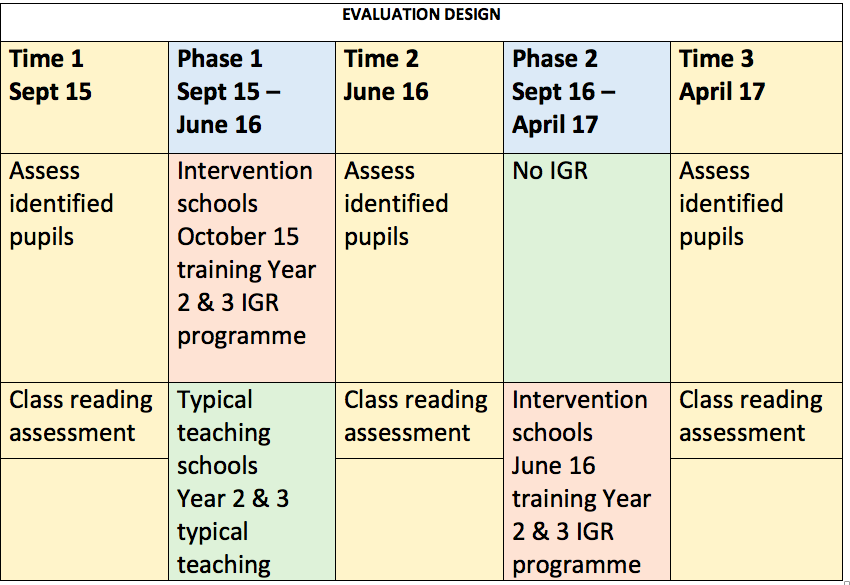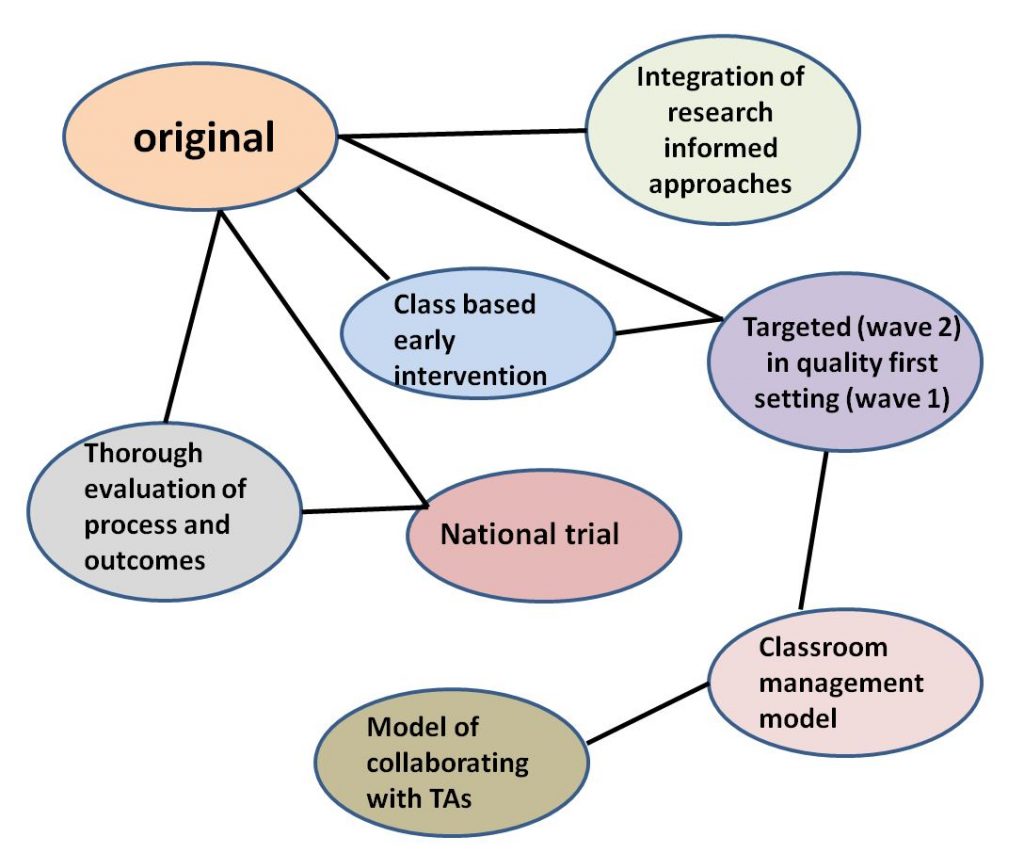The evaluation of IGR has been in two parts (RCT and process evaluation) to address two aims:
* To see whether children’s reading accuracy, comprehension and reading attitudes will be enhanced by IGR compared to usual teaching using a clustered randomised control trial (RCT) design, and
* To observe how the programme is taught in practice, and how teachers experience using the programme.
For each aim different yet complementary methodologies will be followed:
For the clustered randomised design, where each school is considered to be a separate unit (cluster), schools will be randomly assigned into experimental and control groups. The focus will be on reading levels of individual pupils experiencing IGR, and on the wider class.
For the process evaluation the focus is on how IGR is put into practice, and the experiences of teachers in using IGR.
IGR pupils will have their reading individually assessed using the YARC test, and there will also be a group reading test for each participating class (Hodder test). Pupils and teachers will also complete attitudes and self-efficacy questionnaires respectively.
For the process evaluation, teachers will be asked to complete a fortnightly log to monitor the fidelity of the IGR intervention, and field data will be collected by a visiting researcher.
Evaluation of IGR phase 1 Working paper


